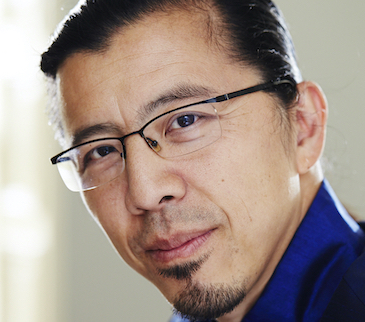For string players, when we are in college and grad school, orchestral excerpts are seen as somewhat auxiliary — we are busy learning all the amazing solo repertoire for our instruments! But if you want to have a career in an orchestra, you must learn orchestral repertoire with the same approach to learning concertos, sonatas, or études. Especially if you’re new to the standard audition excerpts and auditioning in general, having a professional orchestral player who can help you with fingerings and bowings and give you constructive feedback is really helpful.
The Basics
In my career, I have spent a lot of time on both sides of the audition curtain. When musicians ask me for tips on how to prepare for an orchestra audition, I tell them to conquer the Devil in the details, and then you will find God in the details. To advance in an audition, there are some basic standards that must be met: good intonation, rhythmic control, sound quality, and strong musical style and phrasing. Do not neglect any of these categories! Often I will hear players with strengths in some of these areas, but it is hard to find a player who has mastered them all. Stable rhythm is often overlooked in the practice room — your metronome, tuner, and recording device should be your best friends when you’re prepping for an audition. Just as best friends will tell you things you may not want to hear (but need to), recordings will alert you to your weaknesses and help guide your practice.
Differentiate Styles
When you get beyond the basics with an excerpt, be sure to consider context. Ask yourself, why is this excerpt on this list? What else is going on in the orchestra at this moment, and am I playing this excerpt in a way that fits with that? Does my sound reflect the composer and his sound language? How can I use my vibrato and bow speed to achieve the sound I want? Mozart, Mahler, and Strauss all have very different sound palettes. It is wonderful to hear a talented player who can play a perfect Dvorak Concerto, but when every orchestra excerpt after that also sounds like Dvorak, the Yes vote becomes a No.
Mock Auditions
Approach preparing for an audition the way runners do for big races — develop a practice strategy and routine for yourself. Do mock auditions for friends and people who will make you nervous. Record yourself religiously, and take notes in your practice journal. Listen to recordings and study the score so you know exactly what’s going on in the rest of the orchestra during the music. And don’t neglect mental preparation! Spend some time away from the instrument visualizing yourself nailing every aspect of the audition from feeling relaxed and confident in the warm-up room, to the calm focus before you begin each piece, to the way it feels to hit that high G in the Ein Heldenleben excerpt! If you can’t imagine all this, how can you expect yourself to do it onstage under pressure?
Finally, don’t lose sight of the love you have for playing your instrument. With all the intense effort that goes into this work, it is easy to feel discouraged and get burned out. Make space for relaxation and a little fun, especially in the week before the audition, when you are tired and most at risk of getting anxious and tight. If things don’t go your way in the audition, keep a positive mindset and learn what you can from the experience so the next audition will go better. Take notes after each round so you remember what went well and what didn’t. You will not be starting from scratch at the next audition. As they say, Rome wasn’t built in a day…Many professionals lost dozens of auditions before winning their big job!
Interview edited for length and clarity by Claire Thompson.

Úna O'Riordan
Praised for her exquisite tone and musical phrasing, cellist Úna O’Riordan enjoys a versatile career as an orchestral and chamber musician, new music advocate, teacher and clinician. She has performed as soloist and chamber musician in the United States, Canada, and Europe. She was appointed to the Detroit Symphony Orchestra in 2007, and her previous posts include the Oregon Symphony, Principal Cellist of the Sarasota Opera Orchestra, and Assistant Principal Cellist of the Sarasota Orchestra. An advocate for contemporary classical music, Úna is a member of the New Music Detroit (NMD) ensemble, with whom she released their 2018 debut recording “Smoke: The Music of Marc Mellits” on the Innova label. In recent years, she has performed in recital with such diverse artists as legendary pianist Menahem Pressler, violinist Cho-Liang Lin, singer-songwriter Shara Nova, composer/percussionist Andy Akiho, Fifth House Ensemble and the Zodiac Trio.
In 2019, Úna joined the faculties of Oakland University School of Music Theatre and Dance and Wayne State University. She has taught and performed at the Zodiac Festival & Academy in Valdeblore, France, and the Fresh Inc Festival for contemporary music performance and composition in Racine, Wisconsin. From 2013-2017 she taught and performed at the American Institute for Musical Studies (AIMS) in Graz, Austria, where she has led audition-training workshops and served as principal cellist of the festival orchestra.
Úna is a graduate of the Eastman School of Music, where she received a Bachelor of Music with Distinction and was named an Arts Leadership Scholar. She received her Master of Music degree from Northwestern University’s Bienen School of Music. Her principal teachers include Hans Jorgen Jensen, Alan Harris, and Pamela Frame. During her training she participated in masterclasses with Yo-Yo Ma, Janos Starker and Paul Katz. She was a fellowship recipient at the Aspen and Meadowmount Schools of Music, and participated in the Verbier Festival and New York String Seminar at Carnegie Hall.



Comments are closed.